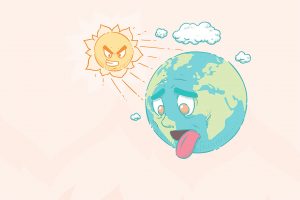
Greenpeace Philippines campaigns for a sustainable future and renewable energy transition
The environmental organization Greenpeace Philippines called out the government to halt fossil gas expansion and transition to renewable energy to address the current and future extreme weather events in the Philippines.
“It must scrap its plans for fossil gas expansion, and demand payment from the biggest climate-polluting companies most responsible for the crisis we’re suffering,” the organization stated in its calls for a sustainable future.
The Center for Energy, Ecology, and Development (CEED), a non-governmental organization, in their report on the Philippine fossil gas landscape in 2021, mentioned that accelerating the development of renewables, updating the grid, and accelerating the development of renewable energy, together with better policies and plans for sustainable energy transition would benefit Filipinos better than prioritizing fossil gas.
Further, CEED raised concerns about the rapid expansion of fossil gas industries in the country.
“With no clear energy transition plans that would determine whether or not fossil gas is truly necessary, it makes no sense for the Philippines to entertain new fossil gas projects,” CEED Deputy Executive Director Avril De Torres shared in the report.
Possible aggravated heat conditions
Following the campaigns for better sustainability, Greenpeace Philippines warns that the dangerous heat index could return once every two years if the world warms to 2°C above pre-industrial global mean temperatures.
In April, around 30 areas in the Philippines were placed under the dangerous heat index forecasted by the Philippine Atmospheric, Geophysical and Astronomical Services Administration (PAGASA).
According to the study made by World Weather Attribution on May 14, the record-breaking heatwave that the Philippines experienced last month was due to human-caused climate change.
“In the Philippines, the change in likelihood is so large that the event would have been impossible without human-caused climate change,” the group said.
Greenpeace also explained that the climate crisis left a tremendous strike on the most vulnerable sectors.
“The sectors that are most vulnerable to the climate crisis are again farmers, but also fisherfolk. A lot of our fisherfolk are already feeling the double impacts of climate change. There are a lot of other sectors that are disproportionately affected by climate change,” Greenpeace Philippines Campaigner Jefferson Chua said in an interview last April 30. – Almira Louise S. Martinez



